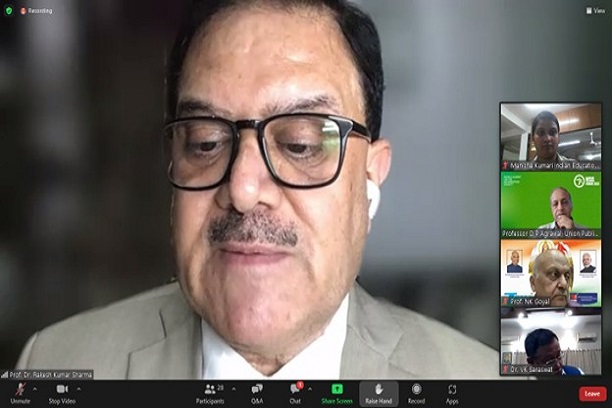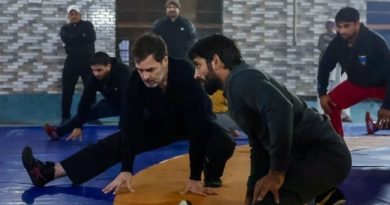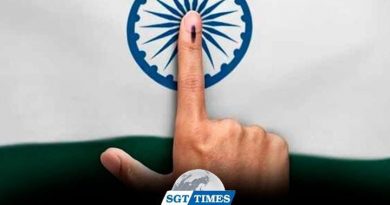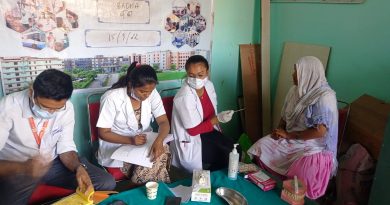SGTU Pro-Chancellor Dr. Rakesh Kumar Sharma addresses conference on digital infrastructure transformation and education held live from Geneva
Nikita Joshi
Gurugram, June 2
Professor Dr. Rakesh Kumar Sharma, Pro-Chancellor, SGT University, Thursday joined an international conference on digital infrastructural transformation and education – the road towards SDG 4, as a panelist where he delivered his speech and also got awarded with 18th National Education Award 2022. The conference was organized by the CMAI Association of India and held live from UN ITU, WSIS, GENEVA.
The conference was hosted by Mr. NK Goyal, President, CMAI Association of India. Along with DR Rakesh Sharma, several other prestigious members joined the panel who have done excellent work in the educational arena, some of them being, prof. Dr, RK Khandal (president India glycol), Dr. VK Saraswat (member NITI Aayog, chancellor JNU), Prof KK Aggarwal (chairman, national board of accreditation), prof. DP Aggarwal (union public service commission) to name a few.
The conference was initiated by Dr. Malcom Johnson (deputy secretary-general ITU) who shared a keynote address on recognizing the efforts of people around the world who are helping in using technology in education which according to him will not only encourage and promote others but also increase investment in the same. He emphasized the fact that connection is very important and technology can connect a vast number of people. Dr. Johnson even praised India for its adaptation to providing education digitally in the times of the coronavirus pandemic. His concern was to make digital educational technology affordable, and easy to use and to make it reach the rural sections of India as well.
The address was then carried on by panelists, initiating with prof. Khandal shared the idea of a new education policy which is to minimize the time and effort of a student for going to university and to bring the university closer to the student along with that he also shared the idea of globalizing education in India and linking industry to university.
Dr. VK Saraswat talked about the toll COVID took on students’ education and teachers. He mentioned challenges of digital education like low teaching abilities, limited access to the internet, no physical interaction, etc. He also added how digital learning is changing the face of education, how ED-Tech startups are becoming the new trend, and how online learning is becoming the future of the education system as it is accessible, flexible, can be customized, cost-effective, etc. He concluded with some recommendations to improve the online education system like free data in school, for teachers, poor students, or marginalized groups of people, free wifi facilities, continuous professional training of teachers, and a safety net to protect children from dropping out in hard times.
Prof. DR Rakesh Kumar Sharma, pro-chancellor of SGT University, described Covid as an inevitable situation in his address which for students resulted in disrupted studies, delayed graduation, etc. Prof, Sharma added that digital education has become the new norm in times like these due to which there has been a shift in learning space, and delivering methods. According to him shift in such things means missing out, on on-campus experience, personality development, confidence gaining, facing and overcoming practical challenges, and social interaction, which are very hard to cover up digitally. He talked about the ideology of ‘challenging the challenge itself’, and here major challenges are no accessibility, creativity, personalized teaching experience, unavailability of the internet, etc.
Dr. Sharma concluded with a recommendation of finding a middle ground and having a holistic approach to the learning system.
Similarly, Dr. KK Aggarwal, Dr. DP Aggarwal, and professor Dhami shared their ideas along with a few others on how COVID came out of the blue but the ship has to keep sailing, how virtual reality, cryptocurrency, AI, and blockchain are making IT department a bright spot while discussing the challenges like the quality of education online along.
Prof. Khandal ended the conference by thanking all the panelists who have worked hard enough in the teaching field all their lives and even in the hard times like the COVID pandemic they helped in shaping the life of students in a new way or the digital way.




